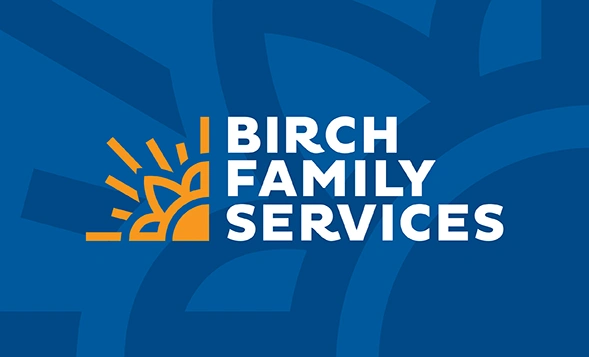A marketing plan is an important document that every business needs. However, many small business owners fear that developing a marketing plan is a daunting task. Creating a marketing plan is a challenge that many may not feel prepared to take on.
In reality, a marketing plan does not have to be a lengthy report nor a series of complicated spreadsheets. A succinct, well-thought-out document is enough to get your marketing initiatives started. In fact, the process of developing and thinking about your marketing is nearly as valuable as than the actual final document.
At Trillion, we have helped our clients develop marketing plans that attract the new kinds of business they are looking to develop. With our clients, we develop realistic marketing budgets, measurable marketing goals and a plan of action that we help execute monthly. Read on to learn some of the basics of how you can get started developing your own marketing plan.
What is a Marketing Plan?
A marketing plan is essentially your company’s roadmap for how you will execute your marketing efforts within a defined period of time.
A marketing plan is a strategic document written for your business that identifies:
who your business wants to target,
what are your marketing goals, and
how you plan on reaching the goals.
Below, we’ve broken down the three core components that should be in any marketing plan:
Identity Your Target Audience(s)
The first step in developing a marketing plan is to identify your target audiences. Your marketing efforts will only be successful if your materials speak directly to your target audience and their needs. Creating a very specific customer profile will help you speak to their needs and wants, compelling them to take action.
Your marketing efforts will only be successful if your materials speak directly to your target audience and their needs.
Your defined target audience should include a profile that will paint a picture of your customer. The profile will help answer questions such as the following:
- Where do your customers live?
- How old are they?
- What is their education level?
- What is their occupation?
- What values do they hold important?
- What do they do in their spare time
- What are their motivations for purchasing your product or service?
Clearly defined audiences will allow you to develop effective marketing materials with strategically targeted messaging. It’s this type of planning and execution that can have a big impact for a brand.
 Identify Your Marketing Goals and How to Measure Them
Identify Your Marketing Goals and How to Measure Them
The next step in developing a marketing plan is identifying your marketing goals. These goals help both evaluate the effectiveness of your marketing and also provide a focus in your marketing efforts.
Develop a short list of attainable goals for the year that can be measured. For example, you may want to build a certain area of your business (such as growing your restaurant’s catering services by 20%) or develop a new sector for your company (obtain 5 new not-for-profit clients). With your marketing goals defined, you can refer back to your plan to measure your success or improve your efforts.
Develop a Multi-Channel Plan of Action
With your target audiences and marketing goals in mind, you are now ready to prepare your marketing communication strategy. An effective marketing plan will touch all types of prospects in your sales cycle. Your plan should include ways to find new customers, ways to stay in touch with existing customers or those familiar with your business, and most importantly, ways to reach individuals who have been exposed to your marketing and are ready to buy your product or service. At the last stage in your sales cycle (those prospects ready to buy), you would either pass them off to your sales team or further cultivate your relationship with them.
An effective marketing plan will touch all types of prospects in your sales cycle.
Consider the marketing channels available to your business and which are most appropriate for those in different parts of your sales cycle:
- Traditional advertising: TV commercials, radio commercials, print advertising, outdoor advertising
- Digital advertising: banner ads, paid search ads, social media advertising
- Website content marketing
- Public relations
- Email marketing
- Social media marketing
- Direct mail
- Tradeshows / conferences / events
- Grass roots marketing
Keep your target audience in mind when considering media they might respond to. For example, your insurance agency may benefit from public relations and advertising to reach new clients but email marketing and social media marketing may work better for staying in touch with those the firm already works with.
Break down your plan of action into smaller items that can be executed throughout the year. You will likely have times during the year that warrant more effort. Plan your marketing efforts around specific holidays or conferences or seasons. As you formulate your monthly plan your marketing calendar will develop.
Measure Your Success and Refine Your Process
Evaluating your marketing plan’s success ensures that you are not wasting valuable time and marketing dollars. Set up ways to track ROI (return on investment) for all of your initiatives, and refine your plan based on your results. For example, creating a unique landing page on your website for your digital advertising to link to, then include a Google tracking code to measure conversion. After evaluating your preliminary marketing initiatives (or previous ones), shift your marketing dollars towards the winners in order to continually optimize your marketing efforts.
Do You Need Help with Your Company’s Marketing?
Trillion in a NJ marketing company and develops customized marketing plans alongside small business owners. We can also execute a marketing calendar to help bring opportunities to our clients, but our true value is helping your company realize its marketing potential through smart positioning, messaging, branding and productive marketing strategies. Call us at 908.219.4703 to discuss your marketing challenges and learn how Trillion can help.


 Identify Your Marketing Goals and How to Measure Them
Identify Your Marketing Goals and How to Measure Them




